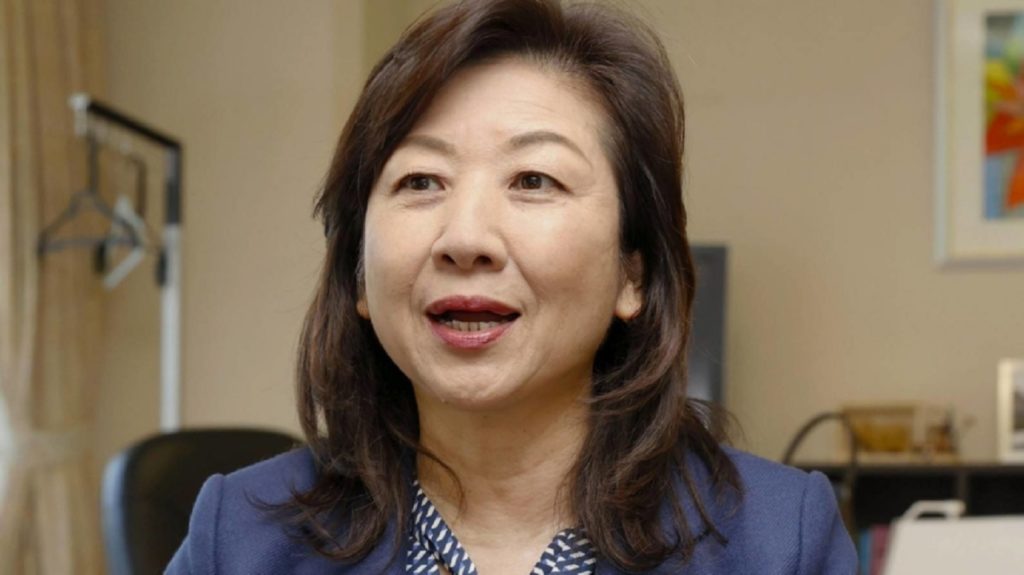Seiko Noda, a former Japanese minister for gender equality, has announced she is putting herself in the running to replace current Prime Minister Yoshihide Suga.
She will run for the leadership race of the Liberal Democratic Party, making the last minute announcement just one day before the campaign begins.
“Although each candidate has a variety of wonderful policies, it was difficult to find policies that would inspire the vulnerable, something which I have devoted my work to as a politician,” Noda said on Thursday.
“What Japan needs from now on is diversity. I’d like to work on conservative policies that will meet the value of women, children, the elderly and the individuals with disabilities.”
Noda has served as internal affairs minister, as well as minister for gender equality and women’s empowerment. Her chances of winning the party leadership are considered a long shot, according to local Japanese media reports. She joins Taro Kono, Fumio Kishida, and Sanae Takaichi in the race for the leadership.
Noda has long been an advocate for gender equality in Japan, having pushed for policies including allowing married couples to have separate surnames and making fertility treatments more accessible. At one time in her career, she was considered the most likely candidate to become Japan’s first female prime minister.
She has been a critic of former prime minister Shinzo Abe, and attempted to challenge his leadership in 2015, but fell short of reaching the political backers she needed to run. Whoever wins the leadership of the Liberal Democratic Party will automatically become Japan’s prime minister, ahead of the general election in November.
She is well-known for having given birth to her first child at age 50, after undergoing fertility treatment with an egg donor.
A veteran politician, Noda has been elected to the house nine times, and is considered a trailblazer for women in politics in Japan. In 1988, she became Japan’s youngest postwar Cabinet member, and throughout her career, has been a leading voice in the discussions around how Japan should address its declining birthrate-aging population dilemma.
In early 2021, Tomomi Inada, a former defence minister, said nothing short of total upheaval could propel a woman to the leadership of the Liberal Democratic Party.
“If the LDP hits a crisis, then women will be able to run,” Inada said in Feburary, in the wake of uproar over sexism at the Tokyo 2020 Organising Committee.
“At the moment, the party doesn’t want to do anything that would involve extra effort. They want to maintain the status quo. But if they reach the point where they can’t win, I think women will have a chance.”
“In the end, the leadership election isn’t decided in the open, but behind closed doors,” Inada said. “If that’s the way they make their choice, then women don’t get much of a chance.”

